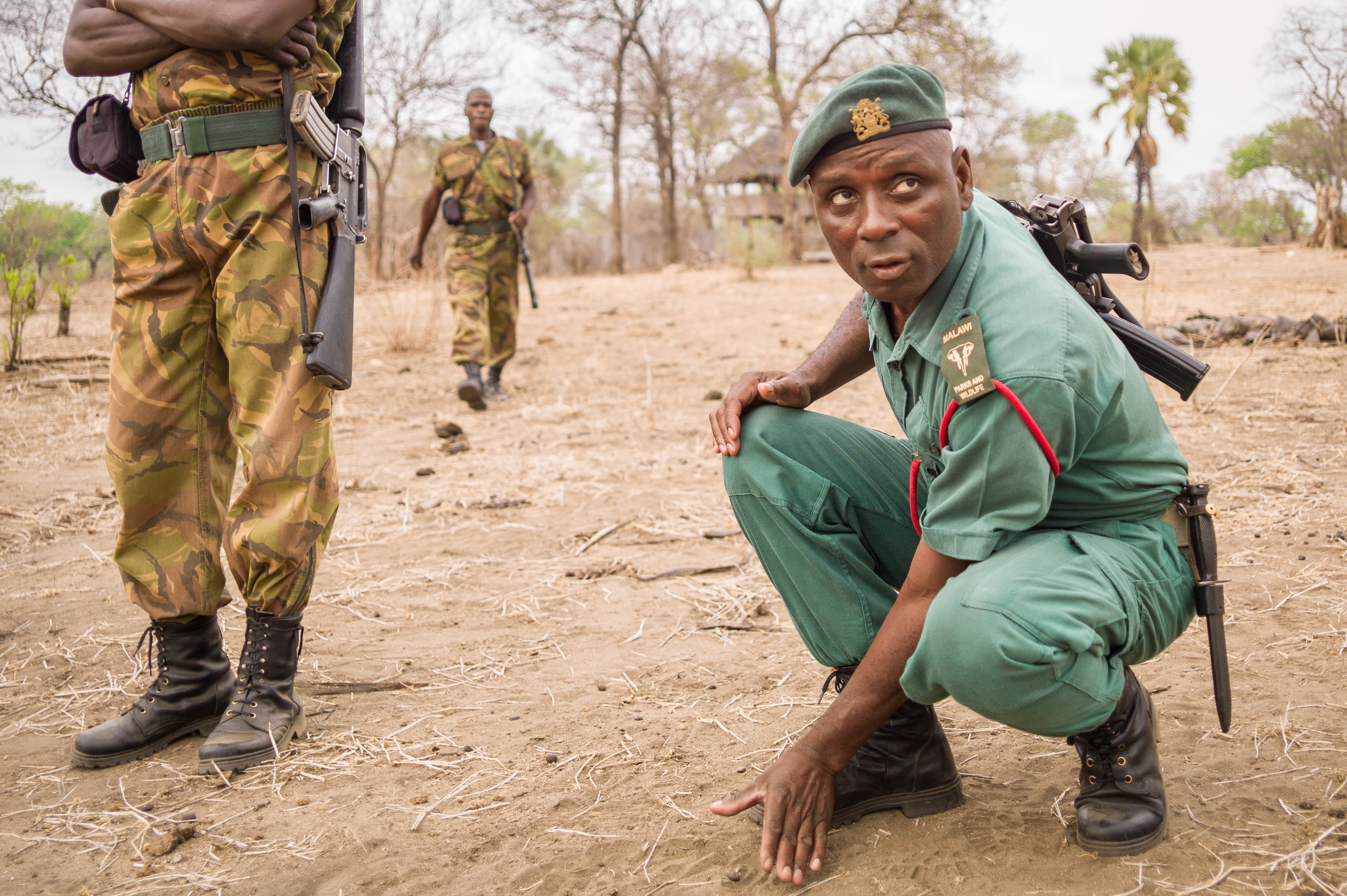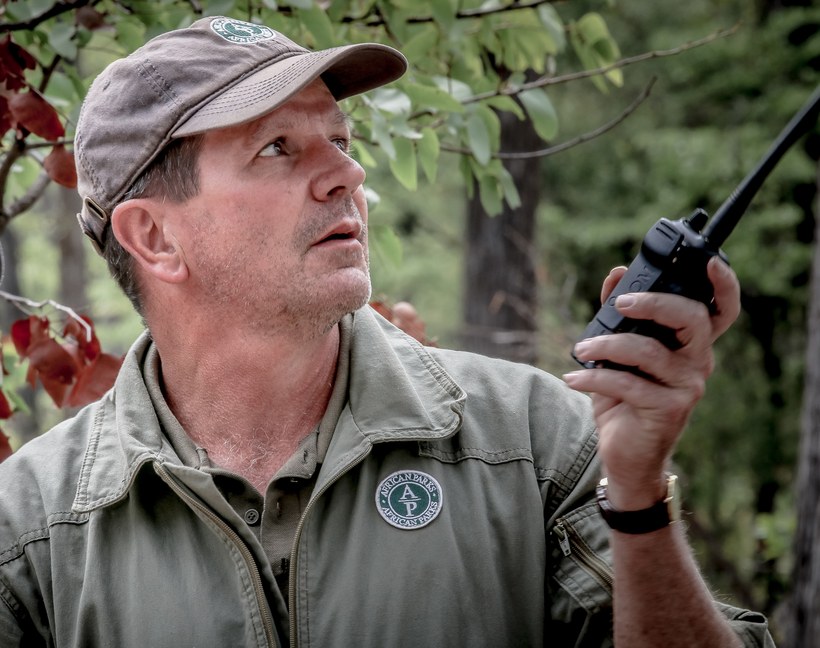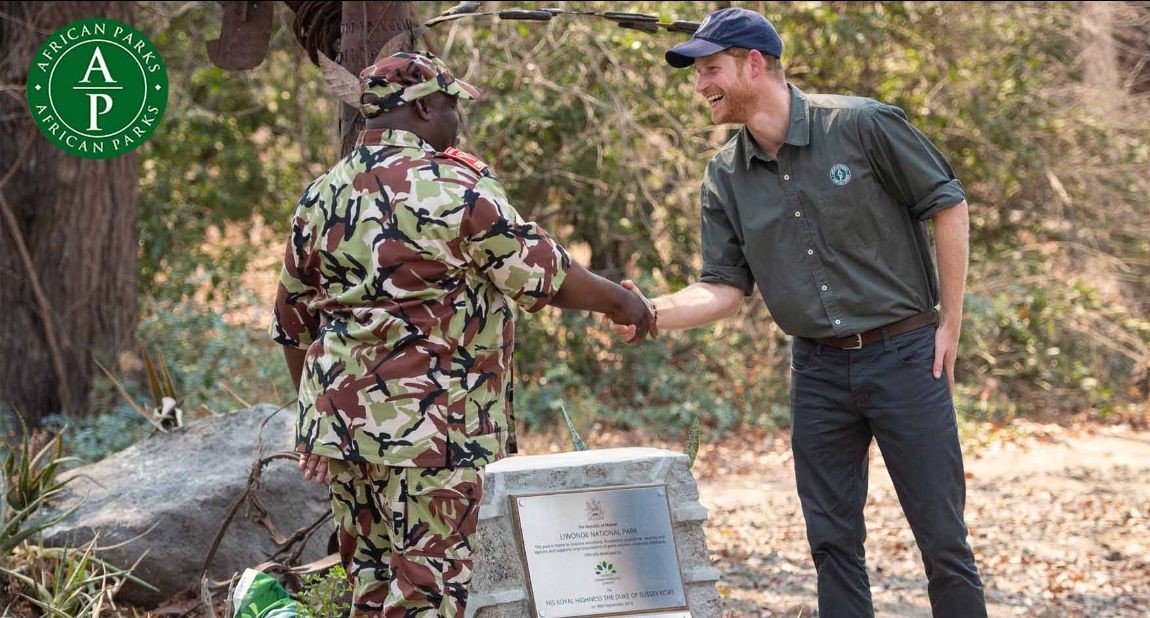African Parks Network
Managing national parks and protected areas..
African Parks Network
“Our vision is to protect 20 parks by 2020, bringing up to 10 million hectares of wilderness under our management" - Peter Fearnhead CEO of African Parks.
African Parks - Our Vision 2023 (video).
ABOUT AFRICAN PARKS
African Parks is a non-profit conservation organization that takes on the complete responsibility for the rehabilitation and long-term management of national parks in partnership with governments (and surrounding communities) to save wildlife, restore landscapes and ensure sustainable livelihoods for local communities. With the largest counter-poaching force in Africa (currently 800 rangers are on staff) and the most amount of area under protection for any one NGO in Africa, African Parks manages 10 national parks and protected areas in seven countries covering six million hectares in Malawi, Zambia, Central African Republic, the Democratic Republic of Congo, the Republic of Congo, Rwanda, and Chad.
As of April 2018, African Parks manages 15 protected areas in 9 countries, including: Pendjari National Park in Benin; Chinko in Central African Republic; Ennedi Natural and Cultural Reserve and Zakouma National Park in Chad; Garamba National Park in the Democratic Republic of the Congo; Liwonde National Park, Majete Wildlife Reserve, Mangochi Forest Reserve, and Nkhotakota Wildlife Reserve in Malawi; Bazaruto Archipelago National Park in Mozambique; Odzala-Kokoua National Park in the Republic of the Congo; Akagera National Park in Rwanda; and the Bangweulu Wetlands and Liuwa Plain National Park in Zambia.
African Parks employs more than 1,000 rangers, as of May 2018. According to The Washington Post, the organization "has the largest counter-poaching force of any private organization on the continent". Peter Fearnhead co-founded and continues to serve as African Parks' chief executive officer (CEO). Michael Eustace, Paul Fentener van Vlissingen, Anthony Hall-Martin, and Mavuso Msimang are also credited as co-founders. Prince Harry, who previously assisted with African Parks' 2016–2017 elephant translocation project in Malawi, was named president in December 2017. Robert-Jan van Ogtrop serves as chairman, as of December 2017. African Parks has received funding from the European Union, Adessium Foundation, Global Environment Facility, Howard G. Buffett Foundation, International Bank for Reconstruction and Development, National Geographic Society, Nationale Postcode Loterij, Swedish Postcode Lottery, United States Agency for International Development (USAID), United States Fish and Wildlife Service (USFWS), Walton Family Foundation, World Wide Fund for Nature, and Wyss Foundation, among others. A financial endowment funded by Fentener van Vlissingen directs approximately US$700,000 towards African Parks' annual operations. The organization's budget was approximately US$35 million in 2016.In addition to park management, the organization: trains rangers; actively manages and protects wildlife; works to reduce poaching and increase law enforcement and tourism; fundraises; improves infrastructure; and supports local residents. African Parks' motto is "a business approach to conservation".
HISTORY
The first protected areas to be managed by the company were Majete Wildlife Reserve and Liuwa Plain National Park, starting in 2003. African Parks had planned to manage Zambia's Sioma Ngwezi National Park, but efforts stalled. The organization began managing Akagera with the Rwanda Development Board in 2009, Zakouma in 2010, and Chinko in 2014. African Parks entered into a memorandum of understanding with Chad's government in February 2015 to establish Ennedi as a protected area, which is in the process of becoming a Natural and Cultural Reserve. Malawi's government entered into agreements for African Parks to start managing Liwonde and Nkhotakota in August 2015. The Wyss Foundation funded African Parks' lion reintroduction project in Akagera in 2015. During 2016–2017, African Parks worked to relocate 500 elephants and other animals from Liwonde and Majete to Nkhotakota. Prince Harry assisted with the translocation, which was done in partnership with the Malawian Department of National Parks and Wildlife, and funded largely by the Nationale Postcode Loterij.
In March 2017, African Parks received $65 million from the Wyss Foundation to fund conservation efforts in Malawi's Liwonde, Majete, and Nkhotakota reserves, as well as Rwanda's Akagera National Park, and supported the addition of up to five other protected areas. African Parks entered into a ten-year agreement in mid-2017 to help manage Benin's Pendjari National Park, then agreed to manage Mozambique's Bazaruto Archipelago National Park in December. In 2018, the organization signed an agreement to manage Ennedi Natural and Cultural Reserve in Chad.Courtesy: Wikipedia
Peter Fearnhead
Fifteen years ago, Majete Wildlife Reserve in Malawi was a forested wasteland, with just a few antelope wandering its perimeter. But today a visitor there would encounter elephant, zebra, lion, eland, kudu and more—such a menagerie, in fact, that by late 2017 Majete had airlifted 154 ellies to another poached-out reserve clear on the other side of the country. Meanwhile, tourism to the park grew more than 14 percent in two years with the opening of a new lodge, bringing needed income to the reserve and local communities. This is just one cog in a master plan to rewild some of the continent’s most barren spaces dreamed up in no small part by Peter Fearnhead, the mild-mannered but tenacious co-founder and CEO of African Parks, who’s helping to write a hopeful chapter in a conservation narrative typically dominated by heartbreak and loss (see: the recent death of the last Northern White male rhino).
He’s been scheming it for ages: At 13, the Zimbabwe native persuaded his school to develop a wildlife reserve on its campus. Today the foundation’s model succeeds by lassoing foreign funding ($88 million last year) to restore habitats and wildlife in parks that the nonprofit then manages—from law enforcement to reintroducing species—for governments too strapped to protect their wild spaces. Founded in 2000, African Parks now oversees 15 parks in 9 countries from Chad to the Congo, with a goal of 20 by 2020. It doesn’t hurt their chances that Prince Harry was installed as its president in 2017. Add to that the partnership deals with high-end lodges like King Lewanika in Zambia’s Liuwa Plain, now with the second largest wildebeest migration on the continent; and soon-to-open Magashi Camp in Rwanda’s Akagera National Park, as of 2018 home to the Big 5; and it’s a safe bet that African Parks will continue filling the map with new life and landscapes—not to mention human livelihoods—for years to come.Courtesy: CNTraveler
ARTICLES OF INTEREST:
AFRICAN PARKS - 2023 Annual Report (PDF).
Majete Wildlife Reserve – Celebrating 20 Years of Operation, September 2023 (vide0).
Building Zinave’s future (Mozambique), April 2020.
See how wildlife is bouncing back in this African park - Moyo in Majete, Malawi (video).
Welcome to Akagera National Park (a history, Rwanda (video) 2015.
Royalty Returns to Akagera - Follow the Journey (video) 2015.
Conservation triumphs - Maputo Reserve & Zinawe, Mozambique, African Parks News Dec 2019.
To save wildlife, African governments turn to private management - National Geographic, Nov 2019.
Inside Prince Harry's efforts to preserve African parks - National Geographic, Sept 2019.
Liwonde National Park: Establishing a sanctuary for lion and cheetah - Dec 2018.
African Parks' Amazing Journey: The 500 Elephants Campaign (video) 2016.
AFRICAN PARKS - 2020 Annual Report (PDF).
AFRICAN PARKS - 2018 Year in Review.
AFRICAN PARKS - 2018 Annual Report (PDF).
AFRICAN PARKS - 2017 Annual Report (PDF).



